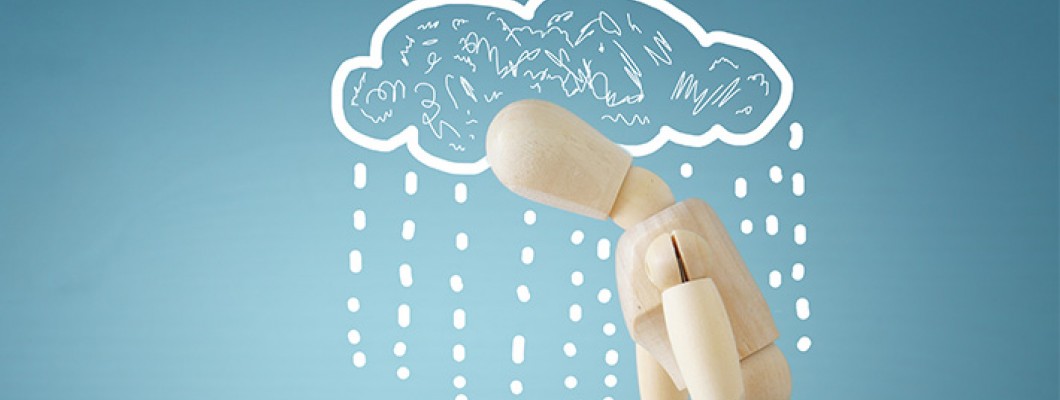
Does CBD really work for anxiety...
According to Borwin Bandelow (2015) large population-based surveys, have shown that up to 33.7% of the population will be affected by an anxiety disorder during their lifetime.
In fact, a great amount of CBD users, claim to use the Cannabinoid to treat their stress or anxiety symptoms – but is there any scientific basis on CBD treating anxiety? And if so, how does it work? To answer that, we first need to understand more about stress and anxiety.
Stress is the natural response of the body to danger or unfavourable environmental conditions. It has been reported in animals, and plants and it is usually a signal from the body, urging it to work harder to survive. It is natural to feel stressed at times, but if the feelings of stress appear for no particular reason, or a person has been experiencing increased stress over a prolonged period, this could be a sign of anxiety. Feeling a little anxious at various high-pressure times in life is to be expected, for example, during a house move, writing the first article at a new job or going on an aeroplane for the first time.
This is the body’s natural response to a threat or danger or new unknown experience. By releasing stress hormones like adrenaline, serotonin and cortisol (Zuardi AW, et al., 1993) (yes, anxiety does make the body feel bloated, it is not the work of the imagination), the body is alerting the subject to be prepared and take extra notice as a safeguard. If functioning ‘normally’ once settled into your new environment, or the stressful circumstances have passed, this ‘high alert’ mode in the body should fade and allow function to resume as it did prior to the threat of ‘danger’. However for those with an anxiety disorder these feelings of fear and danger are ongoing, irrelevant to external factors, which can have a negative impact on the everyday life of the sufferer. The comprehensive causes of anxiety are not clear yet, but there have been remedies proven to help with the symptoms.
Although the exact and comprehensive causes of anxiety are not defined – it could be genetic factors or life events, circumstances and drug use- there are many suggested treatments that do not require medication. Often in the first instance mindful practices and exercise such as yoga are proposed, along with psychoeducational groups, self help books, meditation and others forms of self-care. If after using these techniques the anxiety symptoms are still causing distress, the patient’s GP may suggest trying some prescribed anxiety medication. The most commonly prescribed medication for anxiety and depression are the selective serotonin reuptake inhibitors (SSRIs). SSRIs work by increasing the levels of serotonin in the brain. Serotonin is a neurotransmitter.
In brief, neurotransmitters are chemical messengers that transfer signals from the nerve cells to the brain. This transmission of serotonin is known to positively impact mood and result in positive emotions. After the signal is transferred, excess serotonin will be reabsorbed (reuptaken) into the nerve cell. SSRIs work by blocking the nerve cell “absorption point”. Therefore, serotonin stays in the connection point for longer, transferring the “message” for longer. Put simply, instead of providing more serotonin to your brain, SSRI’s make sure the serotonin already present, works adequately. That is the same mechanism by which CBD is has been proven to help with anxiety (Russo E.B. et al., 2005).
It would be too simplistic to say that depression is caused by low serotonin levels, but a rise in serotonin levels can improve symptoms. Preclinical studies have concluded that CBD can effectively reduce General anxiety disorder (Shannon S., et al., 2019), PTSD, OCD (Blessing E.M. et al., 2015) , social anxiety disorder (Bergamaschi M.M. et al., 2011) and panic disorder (Schier A.R. et al., 2011). As previously explained, anxiety is a complex disorder, originating from many issues and requires a complex solution.
Having said that, CBD has been shown to improve depression and anxiety symptoms by interacting with the nervous system, connecting to the reabsorption point and blocking the entrance for serotonin. This means CBD acts as a serotonin reuptake inhibitor. It is speculated that the Endo cannabinoid system (ECS) might play a part into it too, as it is integral for mood balancing (amongst others) as yet the research has not been to the depth required to identify exact mechanism.
Most research on the effects of CBD on anxiety have studied acute results, where people suffering from different forms of anxiety and had been prescribed CBD before facing stressing conditions, reported less anxiety symptoms than their fellows who were prescribed placebo. It is interesting that similar experiments amongst people without such a disorder, showed that CBD did not affect their anxiety level (David L. Arndt and Harriet de Wit, 2017). That is because CBD is homeostatic (meaning, it helps balance the nervous system). CBD has also been proven to help diffuse the stress related to addiction in smokers (Hindocha C. et al., 2018) and even drug addicts (Yasmin L. et al., 2019). Test subjects that were administered CBD had less cravings than people who were administered placebo.
CBD has proven to have anxiolytic effects both when being orally admitted, e.g. with a CBD oil, gummy, capsule etc, and even when smoked. It is important to note that THC (another cannabinoid) has the exact opposite effects (Bhattacharyya S. et al., 2010), that is why in the EU all CBD products must have less than 0.2% THC, and our products at Peak Organics strive to have less than 0.05% THC. Using 1mg of orally admitted CBD, per kg of weight has been shown to be very helpful for adults who suffer from anxiety. Whilst skin administered products such as balm and lotion will not help with your anxiety, CBD has been shown to have great cosmetic applications.
Refs:
NCBI (2015) – https://www.ncbi.nlm.nih.gov/pmc/articles/PMC4610617/
NHS (2021) – https://www.nhs.uk/conditions/ssri-antidepressants/
PubMed.gov (1991) – https://pubmed.ncbi.nlm.nih.gov/8257923/
PubMed.gov (2018) – https://pubmed.ncbi.nlm.nih.gov/29714034/
PubMed.gov (2009) – https://pubmed.ncbi.nlm.nih.gov/19924114/
NCBI (2013) – https://www.ncbi.nlm.nih.gov/pmc/articles/PMC4604171/
PubMed.gov (2012) – https://pubmed.ncbi.nlm.nih.gov/22729452/
NCBI (2017) – https://www.ncbi.nlm.nih.gov/pmc/articles/PMC5569582/
NCBI (2019) – https://www.ncbi.nlm.nih.gov/pmc/articles/PMC6326553/
PubMed.gov (2005) – https://pubmed.ncbi.nlm.nih.gov/16258853/
PubMed.gov (2018) – https://pubmed.ncbi.nlm.nih.gov/31109198/
PubMed.gov (2011) – https://pubmed.ncbi.nlm.nih.gov/21307846/








